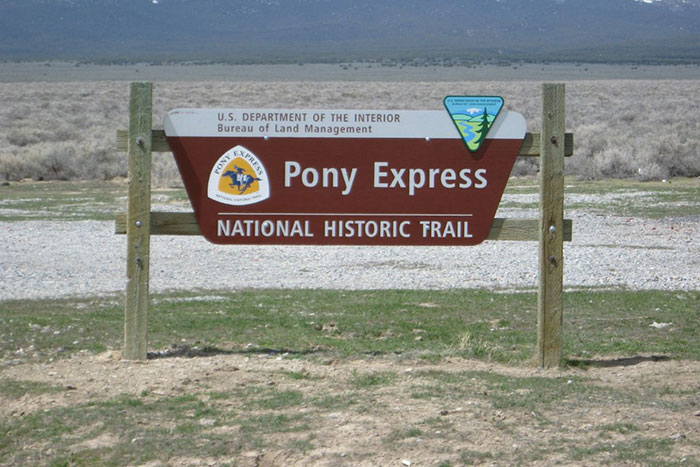Even the most well-educated of people can’t say they know everything there is to know about history; it’s an endless supply of information, fascinating stories, and curious happenings, that would take forever to familiarize oneself with.
So, while we can’t provide you with all there is to know, we can share some interesting facts, to evoke your curiosity at least. Scroll down to find some of the most fascinating little-known facts, as shared by members of the ‘Ask Reddit’ community, and see for yourself just how enthralling history can be and just how much there is still left to uncover.
Below you will also find Bored Panda’s interview with an associate professor of history at Southern Utah University, Dave Lunt, who was kind enough to answer a few of our questions about it and all sorts of historical fun facts.
#1
During prohibition, grape concentrate bricks called Vine-Glo were sold.
On the packaging, it included a very specific warning: "After dissolving the brick in a gallon of water, do not place the liquid in a jug away in the cupboard for twenty days, because then it would turn into wine.".

Image credits: Cassereddit
#2
The Netherlands sends Canada 20,000 tulips every year for liberating them during WW2. The Netherlands also has a cemetery dedicated to Canadian fallen troops.
Source

Image credits: redman9000
#3
During the Irish famine the Choctaw Nation from the USA sent financial aid to them and while a small amount at the time it was seen as a great gesture in return during Covid many Irish people donated money to the Navajo Nation to help them. There’s a statue in County Cork to commemorate it as well.
here is one source
and another

Image credits: Genybear12
Discussing the benefits of delving deeper into history, associate professor at Southern Utah University, Dave Lunt noted that there is a common cliché that we learn history in order to understand the present and the future. “As clichés go, it’s a pretty good one since the ancient Greek historian Thucydides suggested this very thing around the year 400 BCE,” he said.
“However, it’s not that history ‘repeats’ (since circumstances can never be truly identical, as Heraclitus noted when he wrote that nobody can step into the same river twice), but rather learning about history trains our minds to interpret events, to identify cause-and-effect, to anticipate ramifications and historical significance.
“Of course, there is no perfect way to predict the future, but the process of evaluating and interpreting facts in order to understand the world is good exercise for our brains, and might help us make good decisions,” the expert said.
“Besides the value of practicing what we call ‘historical thinking’, I believe it is still important to memorize things. I understand that basic facts are often just an internet-search away, but the act of memorizing—whether it’s historical facts or poetry or anything else—has positive effects on our brains.”
#4
Humans developed agriculture around 12000 years ago. By storing grain, huge numbers of rodents flourished. Cats showed up to eat the rodents, and humans learned that if they took care of the cats, the cats would control the rodents. Therefore, it was the invention of agriculture that led to the domestication of the house cat.

Image credits: redvariation
#5
Abraham Lincoln's son (Robert Todd Lincoln) was present at three different presidential assassinations. After McKinley, he decided not to accept any more invitations.

Image credits: Remote-Building3208
“I’m sure it’s different for every person, but I think learning something surprising helps us stay humble and open-minded,” Lunt told Bored Panda, suggesting that browsing random historical facts every once in a while is not a bad idea. “If we are surprised by a new fact or idea, that can help us realize that our assumptions are not always valid, and that we might need to change our minds. In a world full of strong opinions—both informed and uninformed—a little bit of humility and some open-mindedness go a long way.”
#6
The Canadian-Denmark whiskey war was probably the most polite war ever. It involved a small island off the coast of Greenland. The Canadians claimed it by putting the Canadian flag and bottles of Canadian whiskey on the rock, and the Danes would replace it with schnapps and the Danish flag. Both sides reached an agreement to split the island in 2022. I'm guessing this is more well known to Canadians and Danes than some of the rest of us.

Image credits: censorized
#7
Mongolian invasion of Japan was stopped by a typhoon. When they tried again, they were stopped by another typhoon. To this day these were the only two typhoons recorded in that place.

Image credits: treearemadeofbark
#8
Ancient Romans would put sandals on the hands of sleeping people then tickle their face so they would slap themselves.

Image credits: WhimsicalWhispere
In an interview with Bored Panda, Lunt shared that the facts that fascinate him the most revolve around the things that ancient people believed to be true, which today we no longer hold as factual. “It helps me remember that the things we consider today to be ‘true’ might cause future humans to chuckle at our own ignorance. For instance, there was an ancient tradition that Socrates, the great philosopher, interpreted sneezes as divine messages.”
Another example that the expert gave was the case of the Roman writer Pliny the Elder who recorded a tradition (written by an earlier writer named Caecilius) that the entrails of a hairy spider could be used as a contraceptive, if attached to a woman’s body before sunrise.
#9
The reason we have coal is because trees weren't biodegradable back then, so it just underwent the geological proces and formed underground under pressure and high temperatures.
The fungus that breaks down trees, only evolved 40 million years ago.

Image credits: SpidermanBread
#10
For Americans: the Coal Wars were a series of armed conflicts from the 1890s to the 1930s in which the exploitation of mining workers led to riots and then outright battles between the workers and the armed mercenaries hired by mining companies to terrorize and kill them. It culminated in the Battle of Blair Mountain in 1921, which ended when the United States Army was deployed on domestic soil to eliminate the strikers.
And then our nation collectively memory holed it because we wouldn’t want other exploited workers to get ideas.

Image credits: TimeViking
#11
Portugal had a Death Queen and it is an insane real love story.
If you like Romeo& Juliette, search for the story of Dom Pedro and Dona Inês for the real life version of it.
Long story short: Dom Pedro was 1st in line to be the next king of Portugal so his father, the King, arranged a marriage suited for his position with a Spanish noble lady. But the future King fell in love with one of the ladies in waiting of his bride, Dona Inês.
They got married in secret and had a bunch of kids. The King didn't like that and sent his Knights to kill her. Dom Pedro went bat s**t crazy, found the Knights and killed them and ripped of the heart of one of the Knights.
Then he got the corpse of Dona Inês, put it on the throne and made the nobles pay allegiance to her by kissing her hand.
He still became King in the end. There is a lot more too this story but all of it is crazy but true facts. Portuguese Royals history is full of stuff that could be part of Game of Thrones.
Lunt shared that the things people once believed to be factual information that are no longer true help him remember that, as much as humans are in some ways ‘universal’, the people of the past are very different from the people of the present. “Remembering that the Romans liked to eat dormice, or the Greeks exercised naked—the root of the word ‘gymnastics’ in ancient Greek is gymnos, meaning ‘naked’—helps me remember that ‘the past is a foreign country’, as L.P. Hartley wrote,” he said.
#12
The Chinese sparrow hunt in 1960. It was to protect crops but it allowed invasions of locusts that no longer had a predator and this caused the great Chinese famine.

Image credits: NismanNoMurio
#13
The Great Emu War in Australia (1932) - soldiers armed with machine guns fought emus to protect crops. The emus won.
#14
In general, most of the "peaceful" movements that resulted in freedoms we enjoy today (civil rights, labor organizing, anti-war protests, the anti-colonialist movements led by Gandhi and Mandela, etc), required **significant** direct action and targeted political violence in order to succeed.
“I am also interested in less-well-known historical stories that nevertheless show great drama and spark interest,” Lunt continued. “For instance, take the story of Cratesipolis, a woman who was married to a Macedonian nobleman named Alexander (not Alexander the Great).
“This Alexander occupied some Greek cities near the Isthmus of Corinth, including the city of Sicyon. Eager for independence, some warriors from Sicyon betrayed and killed Alexander, thinking they had won freedom for their city. Not so: Alexander’s wife, Cratesipolis, took control of her husband’s army, quelled the insurrection, and crucified those who had betrayed her husband.
“Women are often under-represented and many of their stories are untold in Greek history. I like reading stories like these that have somehow survived for thousands of years, and—like I pointed out above—they upend some of our assumptions (in this case about the role(s) of women in the ancient Greek world). Of course, maybe Cratesipolis was the one exception to the gender roles at the time; or maybe—and this is what I hope to be the case—ancient women had more opportunities than the sources suggest.”
#15
A very recent historical fact that is weirdly not talked about as much as it should be -- Microsoft had accumulated such a big monopoly over the personal computer market through the 80s and 90s that in 1997 Microsoft was nearly broken apart by the US government. In an attempt to avoid an investigation, Microsoft invested nearly $150 million into a then-failing Apple Computer to give the US government less ammunition in a potential anti-trust case. This saved Apple from bankruptcy and helped them to become one of the biggest tech companies in history. Microsoft, however, profited off of this investment. In 2003, Microsoft sold their shares in Apple for nearly $600 million.

Image credits: bbbbbthatsfivebees
#16
Richard Nixon conspired with Saigon to win the 1968 presidential election. He interfered with the Johnson administration’s attempt at a peace treaty. This was literal treason and I feel that very few people know about it. The NYT wrote a piece about it in 2017.

Image credits: AlertOtter58
#17
Many people know about Neanderthals, but there were also other human species as well. Homo heidelbergensis and Denisovans the other ones that we know of that existed in the time of Homo Sapiens.

Image credits: space_llama_karma
Discussing the topics and periods in history people tend to be least acquainted with, the expert pointed out that in general, they are—understandably—most familiar with the history of their own locations, homes, and families. “In addition, we have the tendency to slip towards the present in our estimations and evaluations. So, in general, I would suspect that the more ancient in time, and the more remote in geography, the greater the capacity for unknown information and facts.
“I live in the United States, and I would love to learn more about ancient China and India,” he shared. “Occasionally, I have the chance to teach World History and we touch upon the ancient cultures of these places, but we can only scratch the surface of what there is to learn. Of course, I can—and I do—read and learn on my own as I can, but there are only so many hours in a day. Similarly, I wonder if people living in China and India today know less about the ancient cultures of the Americas because of the geographical distance that divides them. I don't know this; I just wonder about it.
“In the world I study, one of the best sources for little-known facts or stories is the ancient Greek writer Plutarch. Plutarch is credited with writing volumes of anecdotes, quotations, essays, and ‘fun facts’ about the ancient Greek and Roman worlds. Collectively, these works are called the Moralia.”
#18
Morocco was the first country to recognize the United States of America as an independent country.

Image credits: prosperosniece
#19
Abraham Lincoln and Charles Darwin were born on the same day.

Image credits: Idea_not_loading
#20
Humanity was likely nearly wiped out about 900,000 years ago when our ancestors were reduced to about 1280 breeding individuals and stayed around that many for 117,000 years.

Image credits: limbodog
“Of course it is entertaining to learn obscure or little-known facts—the so-called ‘fun facts’—and I like the notion that these might spark curiosity and a desire to learn more. But history is more than just assembling esoteric facts. There’s definitely benefit to learning fun trivia (what historians call antiquarianism), but the analysis and interpretation are the true craft of the historian,” Lunt added.
#21
Stegasaurous died out 145 million years ago, T Rex 72-65 million years ago, the Stegasaurous was as old to the T-Rex as the T-Rex is to us.
Grasses evolved about 70 Mya.

Image credits: Ok-disaster2022
#22
The tale of the dancing plague of 1518. In Strasbourg (modern-day France), a woman named Frau Troffea began dancing uncontrollably in the streets. Within a month, about 400 people had joined her. The phenomenon, now believed to be a case of mass hysteria or ergot poisoning, resulted in several deaths from heart attack, stroke, or exhaustion.
#23
The Pony Express lasted only a year and a half.
TheAndrewBrown: It does seem to have been marketed heavily, but it was also one of the first ways to communicate across the country. It also went bankrupt because the telegraph was invented and made it obsolete, which led to it being romanticized like a lot of other “old west” stuff was that got replaced by newer technology. But it was a huge deal during that year and a half

Image credits: Civil-Resolution3662
#24
Bicycle face.
"In the 19th century, a mysterious condition called "bicycle face" was created to scare women from riding bicycles - **flushed cheeks, hard clenched jaw, bulging eyes** are just some of the symptoms".
#25
In the 1920s Liberia had a general election, which the True Whig party won with 243,000 votes.
There were 15,000 registered voters for the election.
#26
More people died during the production of the V2 rocket than were killed by it as a weapon of war.

Image credits: tim_to_tourach
#27
The magician Harry Houdini hated people who claimed to be psychics and clairvoyants so much that he once testified before congress in an attempt to get fortune readings and things like that made illegal.
#28
Thomas Jefferson created his own version of the Bible by hand that removed the whole first testament and any and all mentions and references to miracles and the supernatural. It’s called a Jefferson Bible and you can still get them.
#29
In the early 1900s, the Tennessee Children’s Home Society was an illegal orphanage that kidnapped babies from poor households and sold them.
If you're interested, read the book Before We Were Yours.

Image credits: Reach-for-the-sky_15
#30
Coca Cola still uses coca leaves in their formula but just for the flavor. They are the only US company that is legally allowed to import coca leaves. The processed leaves are then sold to a pharmaceutical company.

Image credits: sn0m0ns







